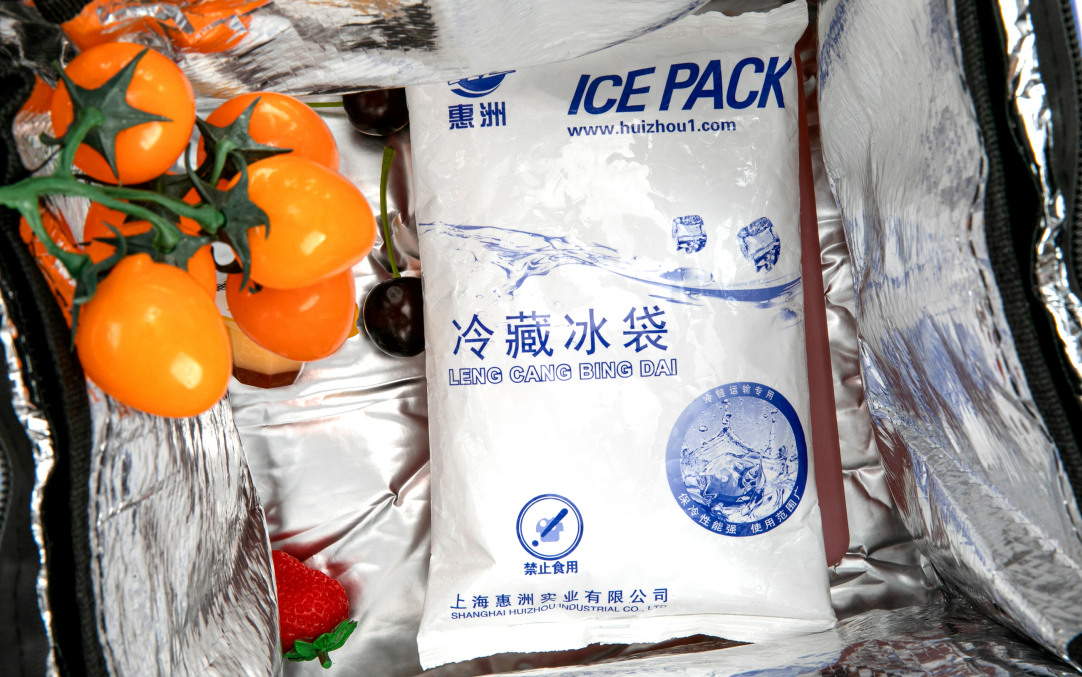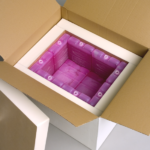La gestion de la chaîne du froid garantit que les produits nécessitant un environnement à basse température restent stables tout au long du processus, de la production à la consommation.. Ce processus comprend la production, stockage, transport, distribution, et ventes. Par exemple, la glace d'été ne serait pas attrayante si elle fondait pendant le transport. L'objectif de la gestion de la chaîne du froid est d'éviter que les produits sensibles à la température, such as ice cream, fresh food, et vaccins, from deteriorating.
Key Elements of Cold Chain Management
To effectively manage a cold chain, attention must be given to the following key points:
1. Contrôle de la température
- Suitable Temperature: Different products require different storage temperatures. Par exemple, refrigerated food should generally be kept between 0°C and 4°C, while frozen food should be stored below -18°C.
- Real-Time Monitoring: In pharmaceutical distribution, temperature monitoring equipment should be used to check and record temperatures during transportation, ensuring they remain within the appropriate range.
2. Suitable Packaging
- Insulation Materials: Choose the right packaging, such as VIP incubators, EPS incubators, or aluminum foil insulation bags, to maintain the temperature during transportation.
- Cold Storage Agents: Select appropriate refrigerants, such as refrigerated ice packs, frozen ice packs, packs de glace en gel, or organic phase change materials, depending on the needs.
3. Right Mode of Transportation
- Cold Chain Logistics Companies: Select companies with cold chain transportation capabilities and suitable refrigeration equipment.
- Route Planning: Optimize transportation routes to reduce time and minimize temperature fluctuation risks.
4. Fast Loading and Unloading
- Rapid Operation: Load and unload goods quickly to minimize temperature fluctuations. Ensure consistent temperatures in cold storage, véhicules, and distribution centers.
- Standard Operation: Train staff to handle goods properly, avoiding damage to packaging or seals during loading and unloading.
5. Ensuring Food Safety
- Maintain Hygiene: Ensure packaging and transportation equipment are clean to avoid contamination.
- Inspection régulière: Regularly check cold chain equipment to ensure it is functioning correctly and to prevent temperature issues caused by equipment failures.
By focusing on these key points, the quality and safety of frozen and refrigerated products, including pharmaceutical reagents, can be ensured during express delivery, providing consumers with peace of mind.
Components and Process of Cold Chain Management
1. Requirements Analysis and Planning
- Determine the type and quantity of products requiring cold chain transportation.
- Select appropriate transportation and storage methods and develop a detailed temperature control plan.
2. Supplier Selection and Evaluation
- Choose suppliers capable of providing cold chain logistics services.
- Assess suppliers to ensure they have qualified cold chain facilities and operational capabilities.
3. Packaging and Pretreatment
- Select appropriate packaging materials, such as insulation boxes and ice packs.
- Pre-cool or preheat products before packing to ensure proper temperature during shipment.
4. Temperature Monitoring Equipment
- Use temperature recorders or sensors to monitor the temperature during transportation in real-time.
- Ensure the temperature monitoring equipment works throughout the transportation process.
5. Transportation Management
- Choose the right transportation method (camions frigorifiques, containers, etc.).
- Ensure transport vehicles reach the specified temperature before loading.
- Minimize transit times and stopovers to maintain temperature stability.
6. Storage Management
- Use suitable cold storage or refrigeration facilities.
- Ensure the temperature control system is operational and equipped with monitoring and alarm systems.
7. Distribution and Delivery
- Arrange for end distribution to keep products within the specified temperature range during delivery.
- Conduct temperature checks upon delivery to ensure the product’s quality has not been affected.
By following a strict cold chain management process, temperature-sensitive products can maintain the appropriate temperature throughout transportation and storage, ensuring their quality and safety.
Importance of Cold Chain Management
The importance of cold chain management is evident, as no one wants to buy melted ice cream or ineffective vaccines. Proper cold chain management ensures that products remain in optimal condition from start to finish, reducing waste and improving safety.
Industries Relying on Cold Chain Management
Several industries heavily rely on cold chain management, including:
- Food Industry: Fresh products like meat, fruit de mer, laitier, and fruits/vegetables need cold chain management to prevent rapid deterioration.
- Pharmaceutical Industry: Vaccins, produits sanguins, and biological agents require temperature control to maintain effectiveness and safety.
- Chemical Industry: Certain chemicals are sensitive to temperature changes, requiring cold chain management to preserve their properties.
- Flower Industry: Flowers must be kept in a low-temperature environment to remain fresh and vibrant, making cold chain management essential.
Challenges in Cold Chain Management
Despite its importance, cold chain management faces several challenges:
- High Cost: Building and maintaining cold chain equipment and facilities, such as refrigerated vehicles and cold storage, require significant investment.
- High Technical Requirements: Customized solutions are needed to meet specific customer requirements, ensuring temperature control throughout the process.
- Complexity: Cold chain management involves multiple steps, each requiring meticulous attention to avoid any errors.
- Transportation Risks: Long-distance transportation can be challenging due to potential emergencies like traffic accidents or equipment failures, requiring strict temperature control.
- Regulations and Standards: Different countries have varying cold chain management regulations, necessitating adjustments in strategy based on market requirements.
How Huizhou Can Help
Huizhou Company, with its extensive experience and advanced technology, offers comprehensive cold chain management solutions:
- Customized Solutions: Tailored cold chain management plans are provided to meet specific customer needs, ensuring temperature control at every stage.
- Advanced Equipment: Huizhou offers a wide range of advanced cold chain equipment, including ice boxes, sacs de glace, and insulated bags, to maintain optimal product conditions.
- Professional Training: Huizhou provides training to improve operational skills and emergency handling abilities.
- Compliance Consulting: The company assists clients in understanding and complying with local cold chain regulations, ensuring legal and compliant operations.
Through scientific cold chain management, companies can improve product quality, sécurité, and reduce waste and operational risks. Huizhou is committed to providing top-quality cold chain management services to help clients succeed in a competitive market.



























